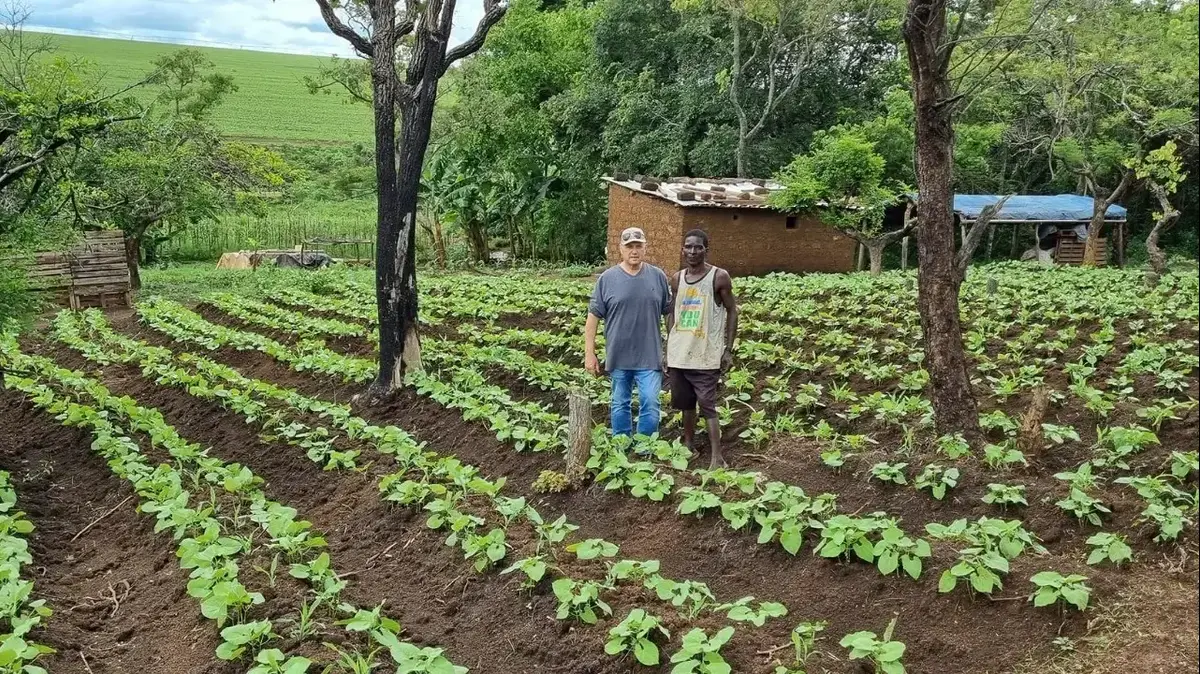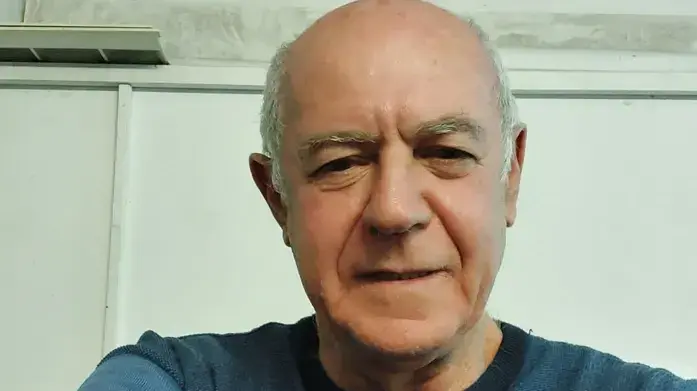For the past three years, the old Kibbutz Ramat Rachel has undergone a tourist facelift.
The kibbutz, which came to the fore in 1926 - almost a century ago - chose to turn to new sources of income, while preserving tradition.
Ramat Rachel, established by the Labor Battalions, is located near Jerusalem and over the years has faced a number of security challenges: during the War of Independence it was occupied by the Jordanian and Egyptian armies, and was liberated a few days later by the Palmach and Jerusalem Battalions. They left and established Kibbutz Ein Carmel, and in 1951 a small group of poisoned people returned and restored the original Ramat Rachel.
The kibbutz is home to 530 people, including 227 kibbutz members.
Outside, 40 families of continuing sons are waiting, waiting for the day when they will be accepted as friends.
The main branches of the kibbutz were agriculture - oranges, avocados, cherries - including many years of trial and error.
After 1967, a kibbutz was also established in the kibbutz, which over the years became a hotel and led the kibbutz's tourism boom.
Over time, the tourism industry has become one of the most important sources of income for Ramat Rachel, and the main attractions offered today by the kibbutz are the winery, the cherry orchard, the hydroponic and country lettuce greenhouses.
"Tourism is our main industry, there is no member of the kibbutz who has not worked in tourism," explains Baruch Kushcheva ("and my wife Leah and I are celebrating 50 years on the kibbutz"), the kibbutz's community director.
"The connection with the hotel and the country touches each of us. When we opened the industry, it was a great celebration. In 1977 we opened the hotel, we renovated it in 1987 and the kibbutz grew slowly thanks to tourism. Almost every day we came to do shifts there, we cleaned. Rooms, we worked in the reception, in the restaurant, in the buffet, so there is no situation that you do not belong.
"We are a kibbutz that looks to the future. There are values that we will not give up - education, welfare and health, this is the solidarity we are talking about - and we will not give up the dining room, our common culture, common holidays. Both as values and worldview, "We will preserve what we have in common with the ability to create personal responsibility."
With this statement, which remained in our minds as well as in our hearts, we went on a tour of the kibbutz.
Let's have a drink
"I left my job at the beginning of 2020, at the worst possible time," laughs Itzik Even Ram (60), a resident of Jerusalem and the founder of Ona Winery.
"It's a real entrepreneurship," he says, "I went with the heart, the soul and the emotion."
The winery, where Even Ram shares with the kibbutz, specializes in the production of liqueurs - Even Ram's crazy craze.
"It all started with trees that grew in my garden. We ate the fruit, boiled jams, distributed fruit and there was still fruit left, so I said we made liqueur - and I did. I made cherry and apricot liqueur, and that's how it started, another jar and another jar."
Even Ram, a financier by profession, traveled with his family on a mission to the United States, where he studied the field professionally. When he returned to Israel, he decided that liqueurs were his true destiny.
"The timing was bad, because of the corona, but we survived. We produced 17,000 bottles in 2020 and sent 10,000 to the US for export.
In 2021 we produced 22,000, and this year the expectation is for 25,000 bottles.
We are three workers at the winery, but what is good about the kibbutz is that it always has working hands.
When we had to refill bottles for shipment to the United States, we recruited people here overnight, both boys and seniors.
"Our motto is Israeli agriculture. I get angry when buying foreign products. We were recently approached by a large Israeli company, which wanted to buy 4,000 bottles as gifts for employees. In the end, they bought bottles of liqueur from abroad.
"All the Israeli wineries were disappointed, not just me."
The winery, a major part of the kibbutz's new tourism industries, has established itself there in the tour section of the visitor center, with tours and tastings.
"We do a lot of tours and excursions here, both domestic and foreign tourism," Even Ram boasts.
The products are scattered on the shelves: passion fruit-flavored liqueurs (the fruit from Moshav Ein HaBesor), pomegranate (from Moshav Shekef), apricot, lychee, etrog, orange, blueberry, plum, figs, berries, and the highlight - strawberry and cherry liqueur made by the kibbutz.
I really want to ask for a chaser, because it's already 11 in the morning and somewhere in the world there is already an open bar.
"Fermentation takes time, depending on the type of fruit," explains Ibn Ram. "It can take several weeks, depending on the weather. The fruit is fermented in its own sugar, we do not add yeast or enzymes. ".
Ram Stone demonstrates to us the preparation of cranberry liqueur.
It filters the liquid obtained from cranberry juice, and calculates the amounts of alcohol that must be added to reach a liqueur that contains 20 percent alcohol (400 ml of 96 percent pure alcohol. Do not try at home). We mix, wait, and a few minutes later we have cranberry liqueur.
Due to the shortness of time, we give up cooling the work (usually the liqueurs are cooled in an ice bucket, except for the cherry liqueur and chocolate that need to be served a little hot), and we start drinking.
I like this winery.
By the way, from the sugar created from the cranberries we worked on, jams will be brewed here.
In a kibbutz as in a kibbutz - nothing is lost.
The values of the kibbutz are reflected in every corner of the winery.
In the hands that come to help, in the quiet and calm spirit that lines the place.
Its name - Ona - is named after the four seasons that bear different fruits, the beautiful logo was created by a kibbutz graphic artist, and the packing house has a collaboration with a rehabilitation village of drug addicts.
Green for him, green for him
Hydroponic lettuce greenhouses.
"Every day we make a Selenova salad. We eat a lot of lettuce on the kibbutz," Photo: Efrat Eshel
The pride of the new kibbutz is the hydroponic sponsorship greenhouses.
Here, unlike the winery, the necessity of the hour is the father of invention.
"We set up the project two and a half years ago, just before the corona," recalls Alex Romano, 41, head of the greenhouses.
Everything grows here on water, in a sophisticated system that feeds itself.
The method, growing in canals, is innovative and also, it must be said, photogenic.
Flower beds upon beds of Selenova sponsors are waiting for skilled hands to pick them up, and tourists who come to the place are amazed by the bright and fresh sponsors.
Financially, was that a good decision?
"Every year we increase construction. After a year and a half we built 12 greenhouses, this year we built another six greenhouses, and the business is already paying for itself. For us it is a developing industry, we plan to build another eight greenhouses."
How many working hands are needed here?
"Depends on the urgency of the harvests. In winter the growing times are 40 days, and in summer it drops to 23-21 days, very agile. From the moment there is seed until the lettuce reaches the consumer (under the name 'Carmelim'; Shaz), only 45 days pass.
It's flying.
We currently have five workers working in the harvest, we start picking at 5 in the morning and finish at 08:00.
The product goes into refrigeration, and goes out for packaging and the consumer. "
Say, do you even like lettuce?
"Yes, like everyone else," he laughs, "I bring three boxes to our dining room every day, and every day they make us a Selenova salad. Just every day. We eat a lot of lettuce on the kibbutz."
Our next stop is the farmyard, an old historic space that once housed the chicken coops, but for a decade stood unused.
In the last year it has undergone resuscitation and is becoming a visitor center.
Here the heart of local tourism beats, and the farm's farm sells Ramat Rachel's agricultural produce.
Here they also manage to convince me to dedicate myself to a lettuce smoothie.
Well, lettuce is a serious motif here.
I indulge in a Selena lettuce-based smoothie, which also includes pear, banana, green apple, a teaspoon of cinnamon and a teaspoon of chia seeds.
But not to be confused, the main part of the smoothie is the lettuce, both purple and green.
Healthy - yes.
Delicious - well, to my surprise, as well.
Re-grow
On the way to the next point we jump to the nursery and meet Nadav Ben Dov, a member of the kibbutz, who was in charge of gardening the kibbutz until a cockroach entered his head.
"Work is our life," he says, "I wanted to save seedlings for the kibbutz, and I realized that if we grew seedlings ourselves we would save 70 percent of the payment. At some point I had two succulent tables in the nursery, and slowly it grew. Demand came later, with the corona. People "They did not leave home and start growing home vegetation, invitations to succulents jumped and no one watched it before. Nursery was my dream for many years, so I focused on succulents and it became a love story."
Ben Dov managed to turn the cockroach in his head into a commercial business, and the nursery is visited by local tourists as well as residents from the area.
Working in a nursery, eight hours a day, is physical work, "but it's not agriculture," explains Ben Dov.
"The work is divided between orders, sales and crops. I grow seedlings myself. Growing garden seedlings takes a few weeks, growing succulents takes a year and two months to a year and a half."
living Water
"The hotel on the mountain."
165 spacious rooms, tours and a variety of attractions, Photo: Gideon Levin
The highlight of tourism in the kibbutz is the Ramat Rachel Hotel, "the hotel on the mountain".
The small and unpretentious guest house has over the years become a spacious 165-room hotel, serving foreign and domestic tourism.
During the Corona, the building underwent extensive renovations, and 85 rooms were converted into new hotel rooms with a collective scent, ones that preserve the past tradition but are adapted to 2022 (an espresso machine in each room, not very kibbutznik).
Accommodation at the hotel offers a combination of a collective experience, which includes spaces and nature, and a city trip, with a jump of less than ten minutes to nearby Jerusalem.
The unique location offers added value in the form of the Judean Desert, and the hotel rooms overlook the desert or the city.
Among other things, the hotel offers attractions in the form of riddles written by members of the kibbutz and Dan Hamitzer (no, I could not solve), guided tours of the kibbutz, including a beekeeping tour, tours of the winery, lettuce and nursery, and in the summer months special workshops for children.
The hotel is adjacent to the country, and guests can go directly to the kibbutz pool and enjoy all the facilities.
I, as the last of the guests, put on a bathing suit and sit down in the lifeguard position.
Water woman Rebecca Lebenstein-Avni (42) comes to host me.
She grew up on a kibbutz from the age of 5 "and has lived in the country since the age of 13. Water is my greatest love," she says with shining eyes.
Avni is a swimming instructor, hydrotherapist, water anxiety therapist, and especially one who has taught hundreds of children on and off the kibbutz to swim.
Today she serves as a duty manager in the country, after spending many years as a lifeguard in the kibbutz pool.
"I would like the pool to be even more central to community life," she admits, "and I lack a therapeutic pool here. This is the future. Once we put most of our lives in the water, the whole perception will change. We live in stress, and the water is soothing. They contribute to rehabilitation, health, "We help people with disabilities, people with asthma, joint pain, knees and neck, and also people with mental problems. All movement in the water is more correct and healthy."
During a conversation, it is clear to me that at the next members' meeting, the issue will already be discussed.
In the meantime, anyone who wants to taste another vacation, member of a kibbutz or not, is invited to dive in, for an experience in Ramat Rachel.
shirshirziv@gmail.com
Were we wrong?
Fixed!
If you found an error in the article, we'll be happy for you to share it with us









